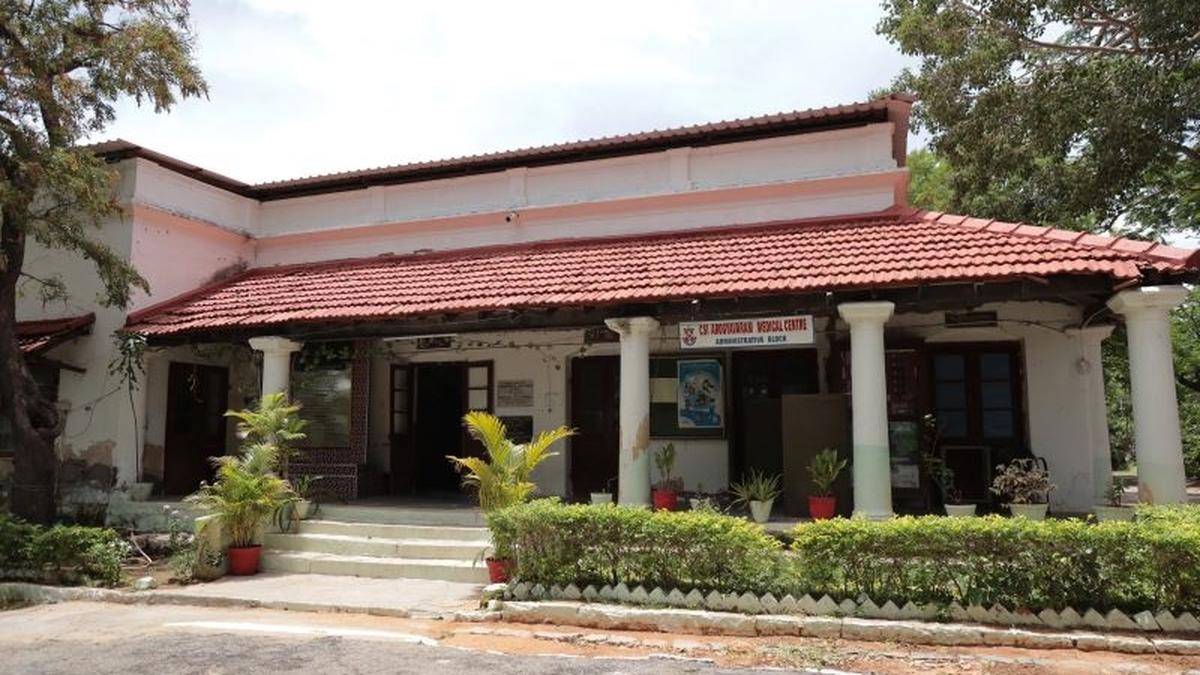
The Rayalaseema town that cherishes its British legacy Premium
The Hindu
Recounting the history of the British Raj in the Madanapalle region of Andhra Pradesh
The very mention of Madanapalle of the Annamayya district reminds one of the cool climes and the misty Horsely Hills. However, not many are aware that Madanapalle was once a nondescript hamlet with no name. It was surrounded by bald hillocks and was reigned over by thugs in the 16th Century.
The town rose to fame as the ‘Maryada Ramanna Kshetram’, which later became ‘Madanapalle’ in the late 18th Century during the transition of power from the Nizams to the British rulers.
It was the British rulers who loved the region for its cool climate and found it a haven to escape the blistering heat of the Kadapa district.
Mohana Valli, English lecturer at Government Women’s Degree College, Madanapalle, believes that she is fortunate to have had first-hand information about the turbulent period of the British Raj between the two Great Wars and the Anglo-Indian life of the post-Independence period.
“The narrator was none other than my maternal grandfather, Bandi Venktrayappa, who died at the age of 102 in 1995. A follower of Annie Besant and a contemporary of Jiddu Krishnamurthy, my grandfather named her elder daughter, my aunt (mother’s elder sister) Annie Besantamma in those days,” she says.
Similarly, several families in the erstwhile Madras Presidency, which ruled the ceded districts, used to christen their newborns after Sir Thomas Monroe (1761-1827) as Monrolappa, Ms. Mohana Valli quotes her grandfather. She attributed the bonding between the people of the erstwhile Madras Presidency and the British Raj to the latter’s “Good Samaritan outlook”.
True to her words, Madanapalle has witnessed unprecedented development since Monroe’s maiden visit to the region in 1800. This development resulted in the formation of the “famine roads,” hospitals, educational institutions, and majestic buildings, which continue to house government offices.

“Writing, in general, is a very solitary process,” says Yauvanika Chopra, Associate Director at The New India Foundation (NIF), which, earlier this year, announced the 12th edition of its NIF Book Fellowships for research and scholarship about Indian history after Independence. While authors, in general, are built for it, it can still get very lonely, says Chopra, pointing out that the fellowship’s community support is as valuable as the monetary benefits it offers. “There is a solid community of NIF fellows, trustees, language experts, jury members, all of whom are incredibly competent,” she says. “They really help make authors feel supported from manuscript to publication, so you never feel like you’re struggling through isolation.”

Several principals of government and private schools in Delhi on Tuesday said the Directorate of Education (DoE) circular from a day earlier, directing schools to conduct classes in ‘hybrid’ mode, had caused confusion regarding day-to-day operations as they did not know how many students would return to school from Wednesday and how would teachers instruct in two modes — online and in person — at once. The DoE circular on Monday had also stated that the option to “exercise online mode of education, wherever available, shall vest with the students and their guardians”. Several schoolteachers also expressed confusion regarding the DoE order. A government schoolteacher said he was unsure of how to cope with the resumption of physical classes, given that the order directing government offices to ensure that 50% of the employees work from home is still in place. On Monday, the Commission for Air Quality Management in the National Capital Region and Adjoining Areas (CAQM) had, on the orders of the Supreme Court, directed schools in Delhi-NCR to shift classes to the hybrid mode, following which the DoE had issued the circular. The court had urged the Centre’s pollution watchdog to consider restarting physical classes due to many students missing out on the mid-day meals and lacking the necessary means to attend classes online. The CAQM had, on November 20, asked schools in Delhi-NCR to shift to the online mode of teaching.









